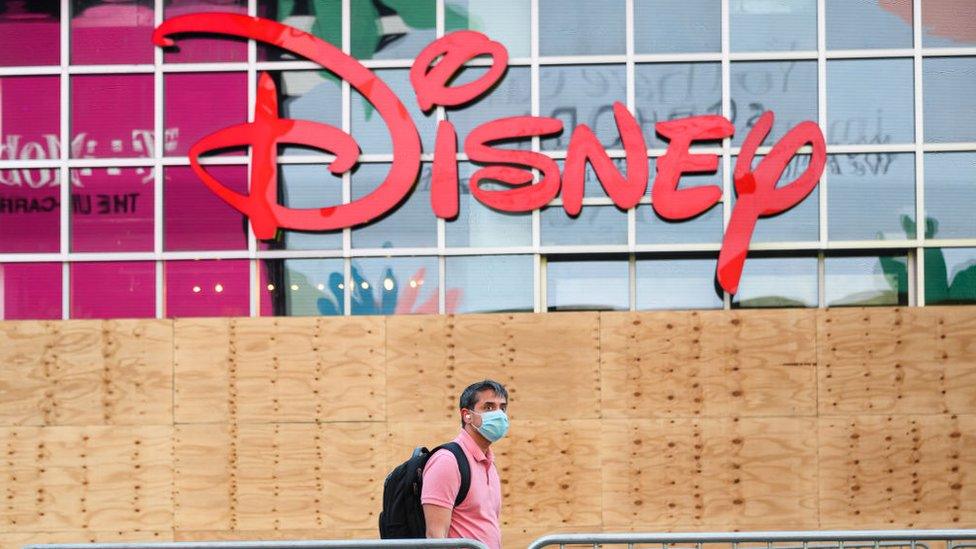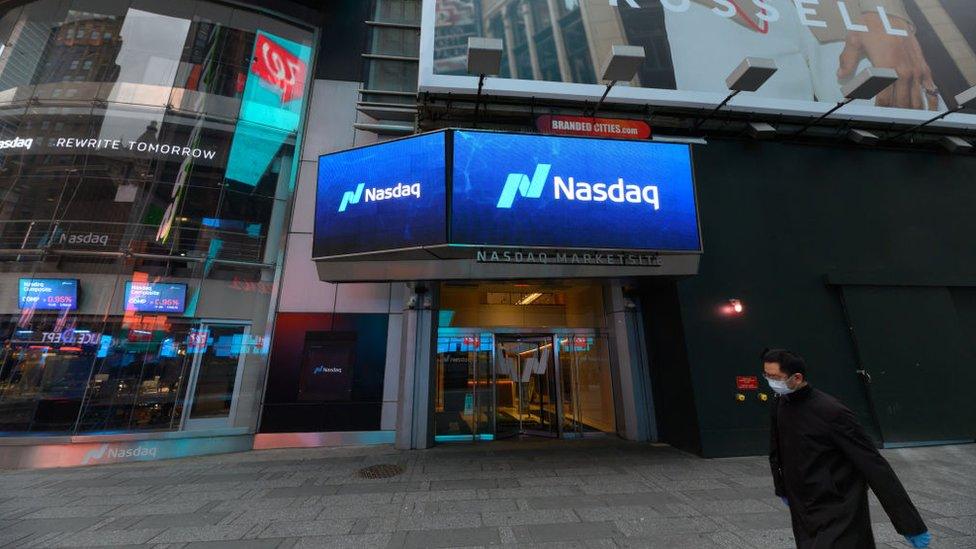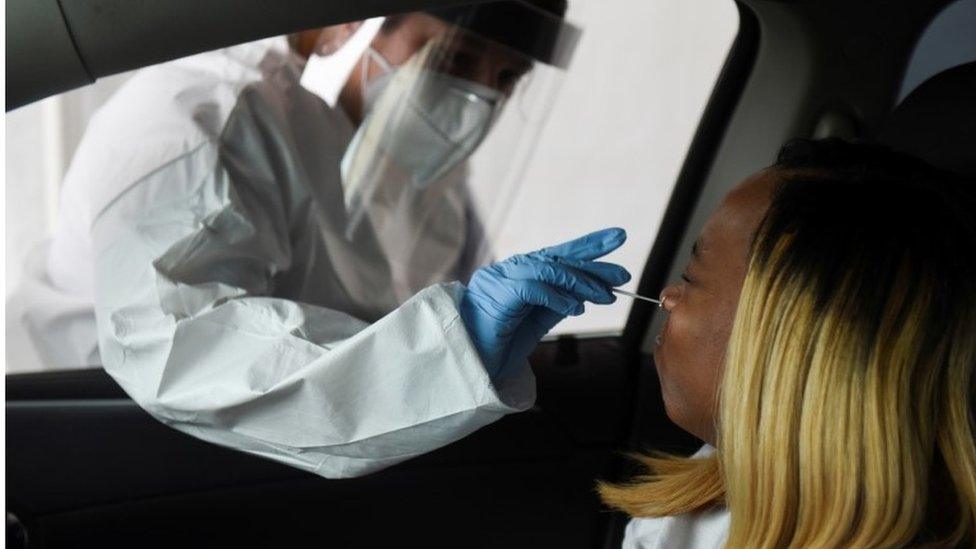US shares hit as virus surge revives economic fears
- Published

Financial markets in the US dropped more than 2% on Wednesday as a rise in coronavirus cases raised the prospect of another round of lockdown measures.
New York and two nearby states announced a quarantine on visitors from some US hotspots, while Europe was said to be considering a ban on US visitors.
The new rules revived concerns about the path of America's fledgling economic recovery.
Shares in travel, retail and energy firms were among the hardest hit.
Cruise lines Carnival, Royal Caribbean and Norwegian tumbled more than 11%, while retailer Gap and shopping mall owner Simon Property Group fell more than 7%.
Energy firms, already grappling with a drop in demand for oil, also slumped, with giants Exxon and Chevron both down more than 4%.
Disney, which has seen its parks closed, cruises cancelled and filming disrupted due to the pandemic, tumbled 3.9%.
The firm is preparing to re-open all of its parks by mid-July, including its properties in Florida and California.
But a labour union representing about 17,000 Disney workers has called for a protest in California, warning that returning to work is not yet safe. In Florida, one of the virus hotspots, more than 7,000 people have signed an online petition surging the company and local officials to reconsider the re-opening plans.

Disney's Florida theme park has been shut since mid-March
"It is clear that theme parks - a non-essential business - should not be planning to operate until the cases have gone down again," the petition says, external.
On Sunday, the new daily coronavirus cases reported in Florida were quadruple the amount reported when the state began reopening on 4 May.
Top health advisor Dr Anthony Fauci said many US states including Florida are seeing a "disturbing surge" in cases on Tuesday.
Global contraction
Earlier, European markets also closed lower, with London's FTSE 100 down about 3%, while indexes in Germany and France posted similar declines.
The falls came as the International Monetary Fund (IMF) said the global economy would shrink 4.9% this year, substantially worse than the 3% it forecast as recently as April.

The Nasdaq fell 2.1% on Wednesday over coronavirus resurgence fears
The organisation said it expected US output to contract 8% - 2 percentage points worse than it predicted in April - while the UK would shrink roughly 10%.
The gloomy outlook diverges with the optimism seen in financial markets in recent months, which has propelled the tech-heavy Nasdaq index to new highs and left the S&P 500 and Dow less than 15% lower than their February records.
On Wednesday, the Dow dropped 709 points or 2.7% to close at 25,447. The S&P 500 fell 2.5% or 80.8 points, to close at 3,050.4 and the Nasdaq fell 2.1% or 222.2 points to close at 9,909.1.
Sharp swings in share prices will remain common until questions about how to handle the virus are resolved, Terry Sandven, chief equity strategist at US Bank Wealth Management, recently wrote in a note.
"The path toward normalcy will require more time and is subject to much uncertainty," he wrote.
"We expect volatility to remain elevated from historical levels until coronavirus treatment and prevention solutions become available, presumably in early 2021."
- Published24 June 2020

- Published25 June 2020
